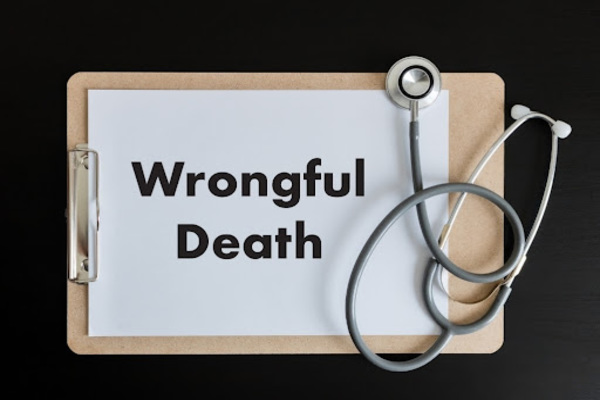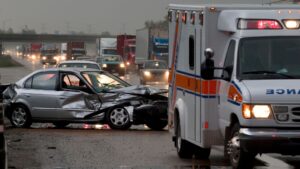
If you lost a family member in an incident caused by someone else’s negligence, you are likely looking to hold them accountable. One of the most common ways to do so is through a wrongful death lawsuit. These cases differ from standard personal injury claims, including what types of compensation are available.
Understandably, one of the most common questions we get from prospective clients is, What damages are available in a wrongful death case? Damages in wrongful death lawsuits are losses sustained by surviving family members rather than those of the deceased.
Contact the wrongful death lawyers in Seattle at Brett McCandlis Brown & Conner PLLC today to learn more about pursuing a wrongful death claim in Washington.
What Is a Wrongful Death Lawsuit?
Before discussing what damages are available in a wrongful death suit, it’s essential to understand wrongful death claims. Wrongful death claims provide an avenue for surviving family members to pursue a lawsuit against the negligent party who killed their loved one. There are some similarities with a regular personal injury claim you might be familiar with. One of these is the requirement to prove the defendant’s conduct was wrongful or negligent. The court or a jury will not award any compensation unless you prove the defendant is responsible for your family member’s death.
Wrongful death lawsuits are available for many types of accidents, including:
- Slip and falls,
- Car accidents,
- Pedestrian accidents,
- Motorcycle accidents,
- Truck accidents,
- Medical malpractice,
- Defective products,
- Assaults,
- Negligent security,
- Dog bites,
- Drowning,
- Workplace accidents, and
- Construction site accidents.
Wrongful death claims differ from standard personal injury lawsuits in that only certain eligible family members can bring a claim, and the types of damages are different.
Types of Damages in a Washington Wrongful Death Lawsuit
Potential damages in a wrongful death lawsuit differ from those in a standard personal injury lawsuit because they aren’t the losses of the deceased. Recoverable damages in a Washington wrongful death lawsuit focus on the financial losses of the eligible surviving family members.
Damages in any personal injury claim fall under one of two categories—economic or non-economic damages. Economic damages correspond to quantifiable financial losses. In a wrongful death lawsuit, that can be funeral expenses and loss of earning capacity. Loss of earning capacity can be calculated using the victim’s estimated net earnings and probable lifetime, using their earnings prior to death.
Noneconomic damages are more difficult to calculate. These are more subjective losses. In a standard personal injury claim, these are items such as pain and suffering or emotional distress. In a wrongful death lawsuit, they include loss of consortium or emotional support from the victim.
Examples of potential damages surviving family members may be entitled to recover include:
- Funeral and burial expenses,
- Financial support for the income the deceased would have earned,
- Loss of emotional support,
- Loss of services, and
- Loss of consortium.
If the deceased lived for a portion of time following the accident and then passed away, the estate may be able to recover their damages under a survival action claim. This is a claim filed by the estate representative on behalf of eligible beneficiaries. Damages in a survival action are made up of the victim’s losses before they passed away.
Who Can File a Wrongful Death Lawsuit in Washington?
Washington laws on wrongful death require that a representative of the estate be the one to file the lawsuit. However, this doesn’t mean the representative is the one who receives the settlement or jury award. The representative acts on behalf of surviving family members whom the law recognizes as beneficiaries.
Only eligible beneficiaries can benefit from a wrongful death lawsuit in Washington. Beneficiaries in Washington include a spouse, domestic partner, and children (including stepchildren). If the deceased did not have a spouse, domestic partner, or children, then the parents or siblings of the deceased can bring a claim. The law changed recently regarding the eligibility of parents and siblings. Previously, surviving parents or siblings needed to show they were financially dependent on the deceased before being eligible. Now, they must only show the deceased did not have a surviving spouse, domestic partner, or children.
Statute of Limitations on a Wrongful Death Case
Like other personal injury claims, there is a cutoff date for wrongful death cases. This date represents the last day that you can file a claim. If you miss the deadline, the court will likely dismiss your entire case. For most causes of action, the statute of limitation is three years from the date of death. The timeline can differ in some cases.
How a Wrongful Death Claim Works
Before filing a lawsuit, surviving family members should start by contacting an experienced Washington wrongful death lawyer to help you through the process.
Investigation
These types of claims tend to be complex and require a thorough independent investigation to prove liability. Before recovering any damages, you must show how the defendant’s actions caused your loved one’s death. Since the deceased cannot speak for themselves, attorneys must rely on remaining evidence, such as witness statements, medical records, police reports, etc. In some cases, it’s necessary to hire experts who can provide valuable insight into the cause of death.
Initiate a Lawsuit
Once your attorney has enough evidence, they will file the wrongful death lawsuit. If there is not an estate representative already named, your attorney can discuss options with you. Once the lawsuit is filed and served, the discovery phase can begin. Discovery is the process where both sides show their evidence and exchange records. Both sides may need to answer written questions as well as provide in-person depositions under oath. Discovery is the time when the hired experts are also deposed to preserve their testimony.
Hire Expert Witnesses
It’s commonplace to have opposing experts on both sides. That is one reason why working with an experienced wrongful death attorney is vital. Your attorney should already have experience with reputable experts in various fields and know how they testify and whether juries like them. When you have two opposing expert theories, sometimes it comes down to how well a jury responds to them.
Trial or Settlement
There is no guarantee your case will go to trial. The potential is there for the case to settle at any given point during the discovery phase. In fact, the Washington courts prefer cases to resolve without a trial if possible.
Contact a Washington Wrongful Death Lawyer
When you lose a family member, it’s understandably a challenging time. You have a lot of things to deal with, and figuring out how to hold the responsible party accountable shouldn’t be one of them. You need to concentrate on your family and grieving for your lost family member. The skilled Washington wrongful death lawyers at Brett McCandlis Brown & Conner PLLC are here to help with the legal aspects. We have years of experience successfully recovering compensation in wrongful death lawsuits. Contact our office today to schedule an appointment and learn more about our services in a wrongful death lawsuit.


